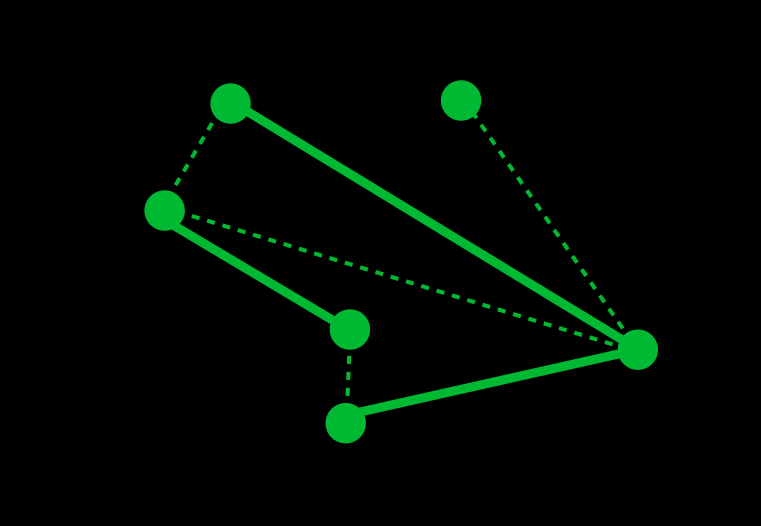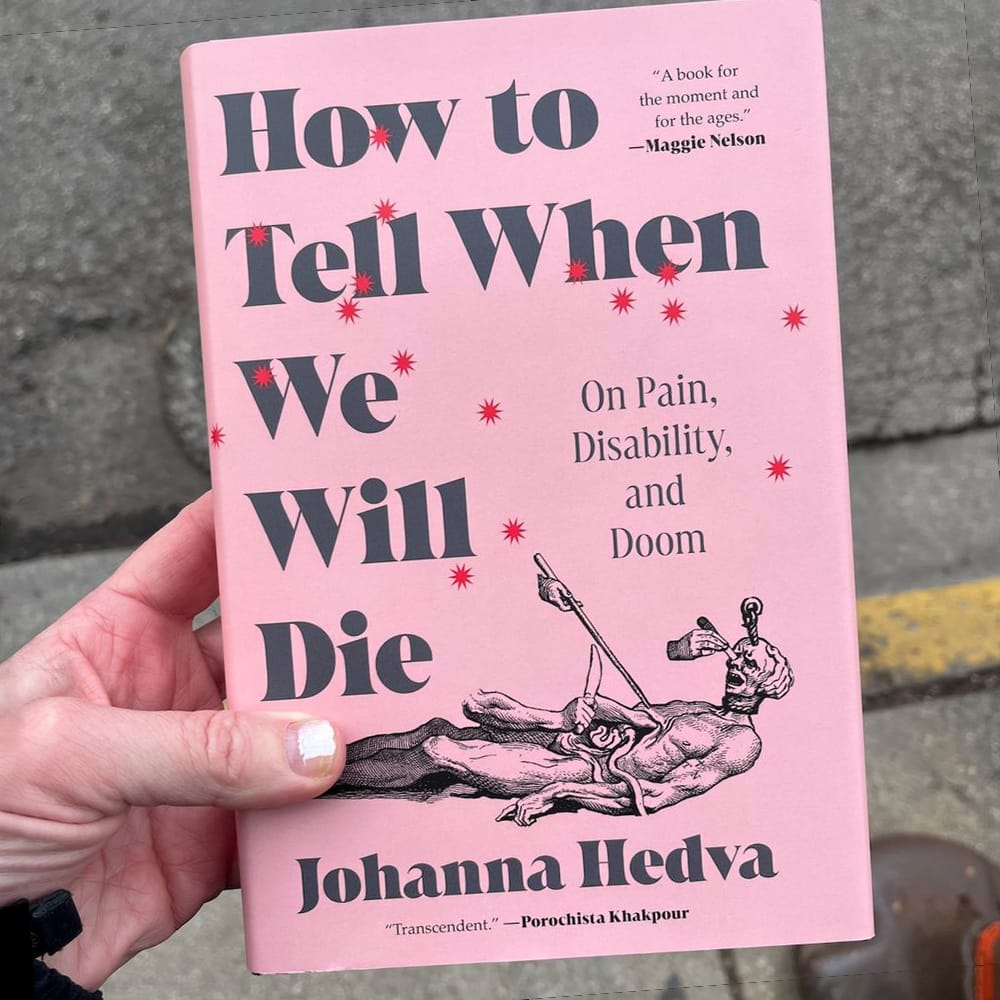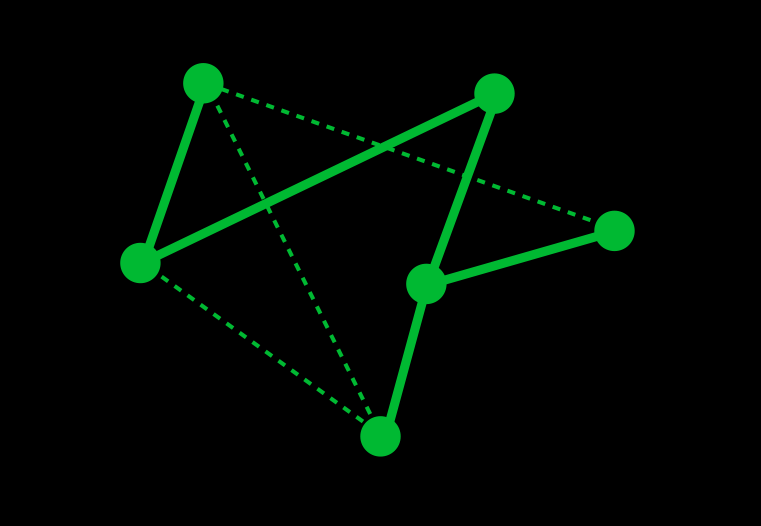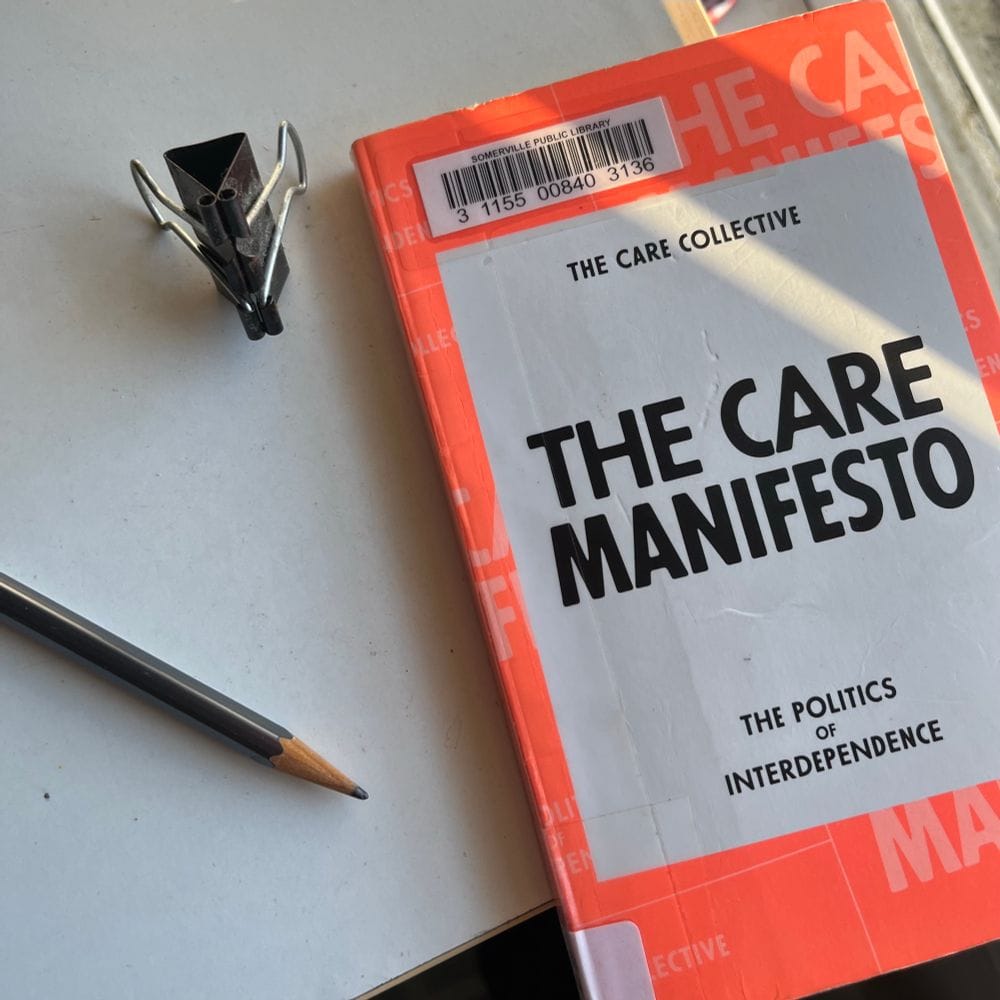Fanny Howe's NIGHT PHILOSOPHY
Nine notes
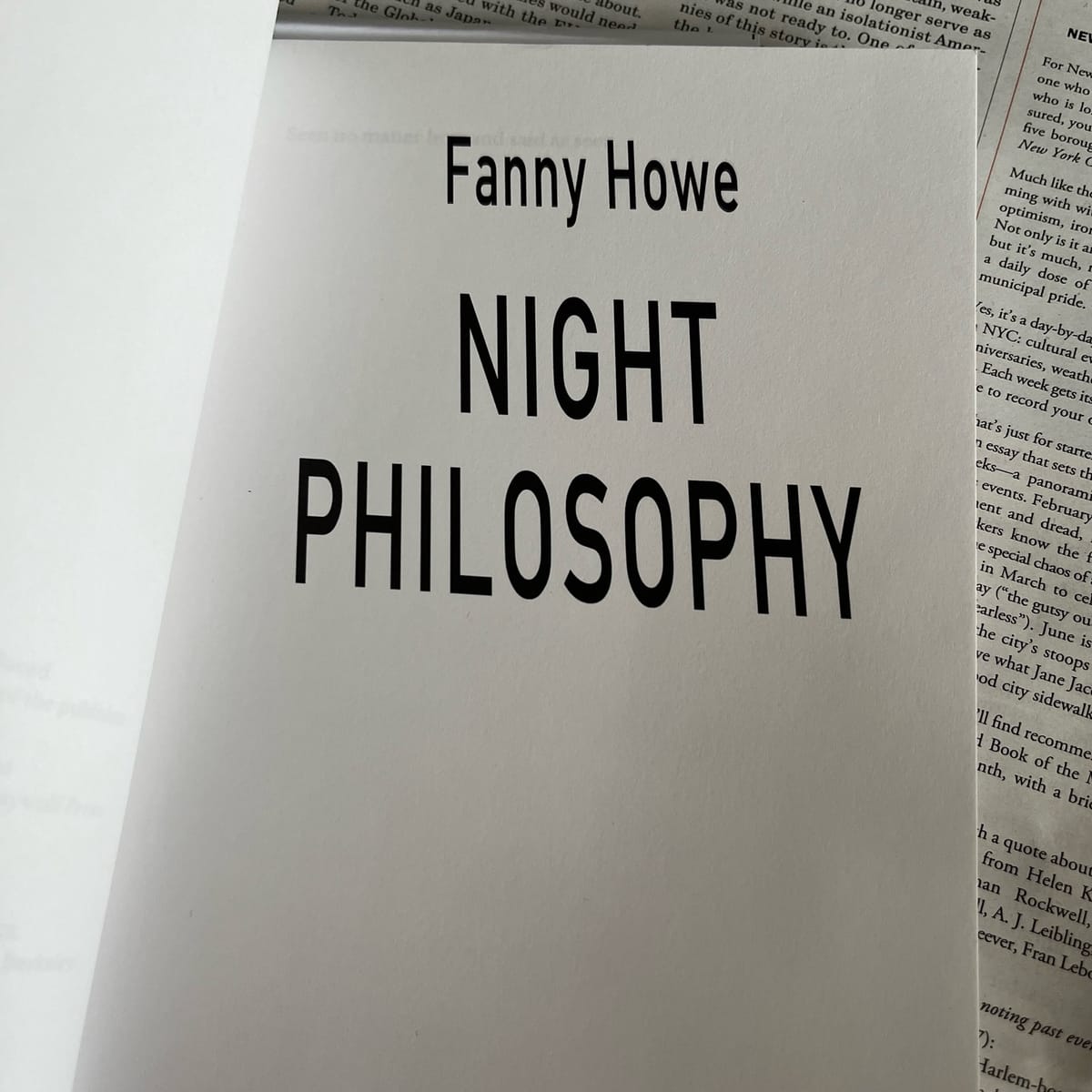
short bluesky summary
⌘ Prose poetry, journal entries, and shards of fiction, covering topics as diverse as activism, spirituality, children’s rights, “bewilderment,” and suicide. It isn’t a grab-bag, though—it works as a single ethical inquiry, cohering in an unstable, Howe-ish way
⌘ the last time I read a Howe book (see this post imported here from 2018 Twitter), I described its organizing logic as a "strange, irregular line" drawn around disparate figures, and that description easily applies to NIGHT PHILOSOPHY too. It works, but not in a way that just anyone could emulate
⌘ Howe's description of her process: "I would scrawl [fragments] all over the place as fast as I could, by hand. and then come back to the fragments and try to organize them as if they were spoke or a letter to someone and I knew what I was saying" (NIGHT PHILOSOPHY, p. 24). That's one way to do it!
■ ■ ■
Notes [oldest to newest]
2. Simone Weil and the "question of time"
3. Bewilderment
4. The poetry of the unlocatable and hidden
5. Martin Buber and the "unbroken"
7. Bewilderment and sound in the lyric poem
